The rich should give more to the poor – yeah right
OPINION: A new study of inequality finds most don’t know the facts and don't like the solutions.
OPINION: A new study of inequality finds most don’t know the facts and don't like the solutions.
The good news is that New Zealand is keeping up in the global wealth stakes. The bad news is that concerns about inequality of incomes and wealth are rising again.
The last time concerns about inequality rose was 2014, when media references showed an eight-fold increase since 2009. It prompted The New Zealand Initiative, a pro-market think tank, to publish The Inequality Paradox, which showed by some measures inequality had risen in the late 1980s and early 1990s.
This coincided with changes in tax rates that favoured high-income earners, a rise in professional salaries, and elimination of double taxation on dividends. The switch to reduced taxes on incomes and higher ones on consumption also resulted in more declarations of earnings, resulting in an overall rise in revenues.
The debate fizzled out, as public attitudes to the rich and those on higher incomes were not strong enough to defeat the notion that a majority saw the benefits of more open economy, and agreed the poor performance in the 1970s and 1980s was due to excessive taxes, low productivity from many inefficient government-owned businesses, and the stifling of private enterprise.
This hasn’t prevented the anti-inequality researchers from continuing their work. For the Rashbrooke family, it is an enterprise that has occupied them for several decades. The work, started by father Geoff, has culminated in Max Rashbrooke’s Too Much Money, which is based on the fear that wealth and income disparities have become so great that social cohesion is threatened and radical redistribution is required.
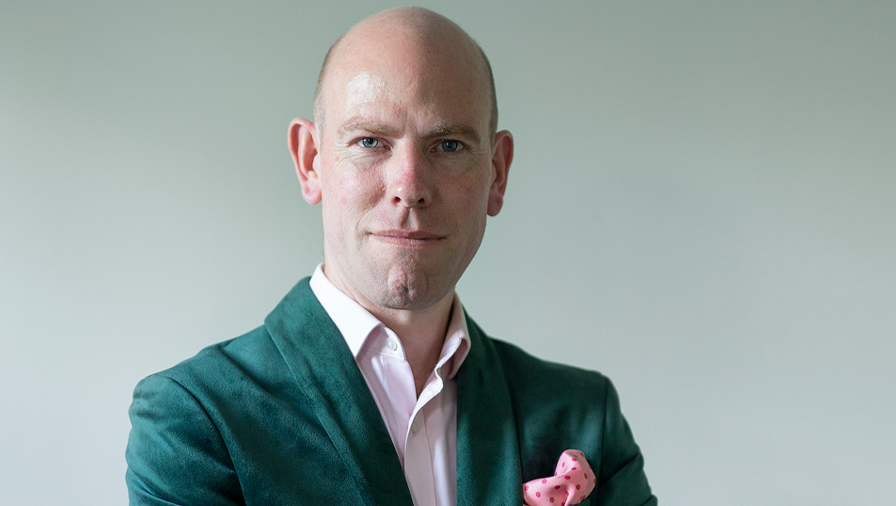
If you have heard that before, it’s not surprising. This has been a demand from the left since society began, not to mention the development of capitalism and the pushback from socialism.
Creating wealth
But before wealth can be redistributed, it must be created. That is where the latest Credit Suisse Wealth Report is valuable. The 2021 edition finds aggregate global wealth rose by US$28.7 trillion to reach US$418.3tr at the end of last year. In terms of current US dollars, total wealth rose 7.4% and wealth per adult was up 6.0%.
This included the effects of the Covid-19 pandemic and the widespread depreciation of the US dollar, in which the report is calculated. If exchange rates had remained the same as in 2019, total wealth would have increased 4.1% and wealth per adult by 2.7%.
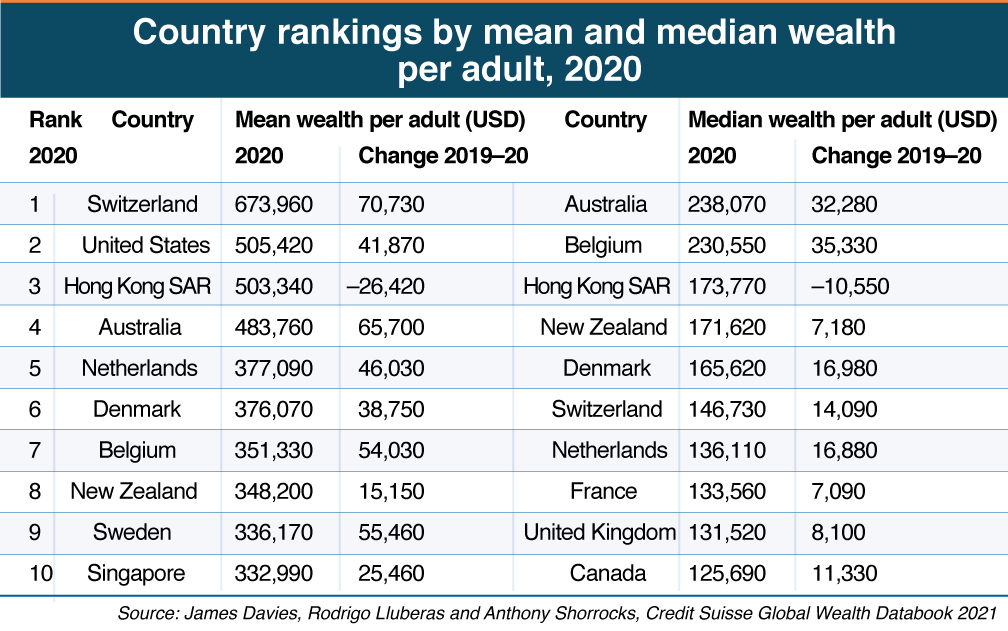
Wealth per adult reached a new record high in 2020 of US$79,952. For comparison, global average wealth in 2000 was US$31,378. So, without making allowance for inflation, average wealth is now 2.5 times its value at the start of the century.
This puts any study of inequality into perspective. Would anyone want equality at the expense of wealth generation? It is not a question you will find an answer to in Too Much Money.
Not every country or region benefitted in this growth. Most of it occurred in North America and Europe. These two regions accounted for the bulk of the wealth gains in 2020, with China and the Asia-Pacific region also contributing. Africa was little changed, while India and Latin America both recorded losses in 2020.
New Zealand held its ground, boosting mean wealth per adult by US$15,150 to US$348,200, to be eighth in the world and grouped in a cluster of six other countries in the US$300,000 to US$400,000 band.
Australia sat just above that with US$483,760, while Swiss adults topped the list on US$673,960, followed by Americans (US$505,420), and citizens of Hong Kong, who were among the few to lose wealth in 2020 at US$503,340.
When those figures are based on median wealth per adult – which favours those with lower levels of wealth inequality – New Zealand jumps to fourth place at US$171,620 behind Australia, Belgium, and Hong Kong.
Notably, Denmark is just below New Zealand, which is mentioned here only because it is the country that Rashbrooke consistently uses to make unfavourable comparisons.
Inequality increases
Credit Suisse says all the indices in this year’s report agree global wealth inequality rose substantially in 2020: the share of the top 10% increased by 0.9 percentage points, the share of the top 1% by 1.1 percentage points, and the Gini coefficient by 0.6 points. Furthermore, with a single exception – the share of the top 1% in 2014 – the inequality rise in 2020 was significantly greater than that recorded in any year this century.
How did this occur in a period of economic disruption? The simple explanation is asset price increases undertaken by governments and central banks. In fact, the Swiss bankers say “global household wealth may well have fallen” if it wasn’t for these actions.
“These have led to rapid share price and house price rises that have benefited those in the upper wealth echelons. In contrast, those in the lower wealth bands have tended to stand still, or, in many cases, regressed. The net result has been a marked rise in inequality in many countries, although the overall level remains below levels recorded before 2016.”
‘Rapid share price and house price rises have benefited those in the upper wealth echelons.’
Historical claims
Alarmist claims of inequality, past and present, aren’t hard to find, despite the juggernaut of wealth creation over recent decades. Take this quote from American economist Paul Krugman’s Peddling Prosperity: Economic Sense and Nonsense in the Age of Diminished Expectations (1994):
“By almost any measure, the middle class is smaller now than it was in 1973 … There is now a pervasive sense that the American Dream has gone astray, that children can expect to live worse than their parents.”
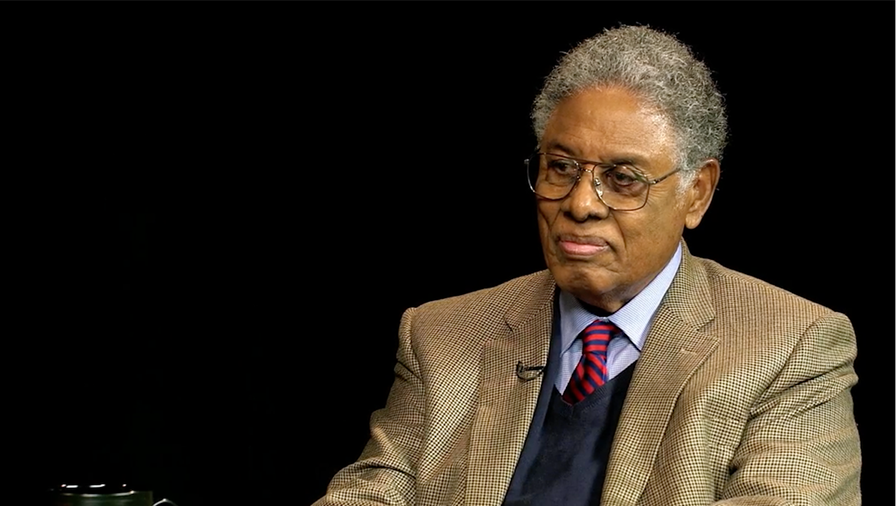
Another American economist, the conservative Thomas Sowell, threw this back at Krugman in Economic Facts and Fallacies (2008), which has an entire chapter on income and wealth.
Not surprisingly, Sowell covers much of the same ground as Rashbrooke, who isn’t silly enough to argue the middle class is disappearing. Both agree public perceptions of rich and poor are much different from the reality, but they differ on whether the statistical basis for many claims reflect real people’s experience over the decades of a lifetime.
‘There is now a pervasive sense that the American Dream has gone astray, that children can expect to live worse than their parents.’
Rashbrooke believes wealth is under-estimated, the middle and upper classes have built-in privilege, and social mobility is restricted. Sowell’s own background counters that and, yes, he also thinks multimillion-dollar salaries can be justified on their economic return.
But debunking by Sowell and others isn’t likely to deter Rashbrooke, who did a year’s research at Victoria University to collect an impressive array of New Zealand-unique data. He is on shakier ground when he quotes only from like-minded overseas researchers (remember The Spirit Level in 2010?).
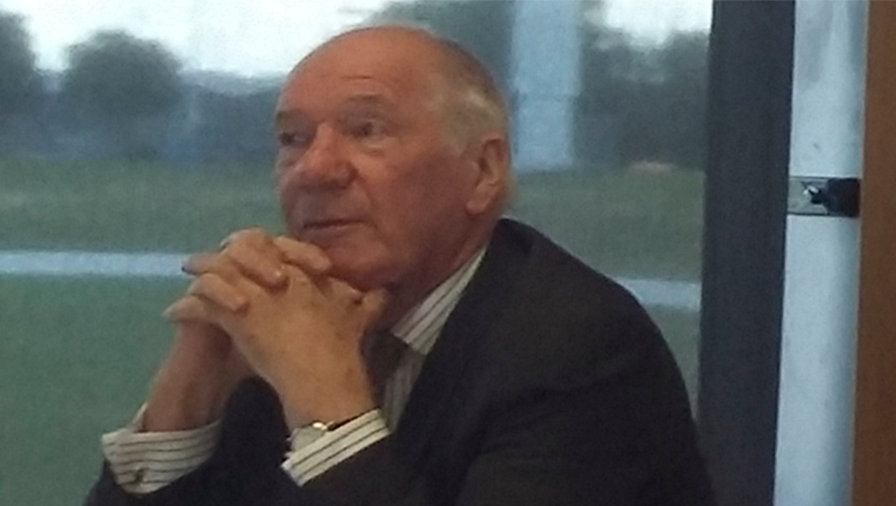
Honest streak
Curiously, his interviews with a handful of individuals, one of whom is unidentified, are mostly indicative of upward mobility, rather than victims of a class-ridden society. The exception is Hugh Fletcher, who abhors high corporate salaries but, in a streak of honesty, thinks attempts to suppress inequality are unlikely and impractical.
Some of Rashbrooke’s five ideas to inject more fairness into New Zealand society fall into the same category. They are hardly earth-shattering and cautioned by New Zealanders’ views that most measures to reduce inequality have to be weighed against fears they will hurt their own chances of improvement.
One is a compulsory Kids KiwiSaver for all children from birth. This could have political appeal, but would complicate an already successful voluntary scheme.
Similarly, public money to encourage entrepreneurs and more risk-taking in a society cushioned against failure is unlikely to have wide appeal if success means sharing the rewards. The same goes for a return to compulsory unionism, albeit with an ‘opt-out’ clause, to restore the higher share of corporate revenue that employees had up to the 1980s.
A suggestion to encourage homeownership through a German-style rent-for-life scheme is unlikely to catch on in a housing market that has different dynamics.
The final idea – surprise, surprise – is a wealth tax that holds the same appeal to any socialist as a universal benefit, but not for a Labour government that is seeking re-election. One possible option is that Inland Revenue’s research programme into wealth could lead to all citizens with an estimated net worth of $5 million or more paying a 3% annual tax on it.
So, if you fit that category, be warned that the crusade against inequality could come with a high price if public opinion takes a turn from its benign indifference.
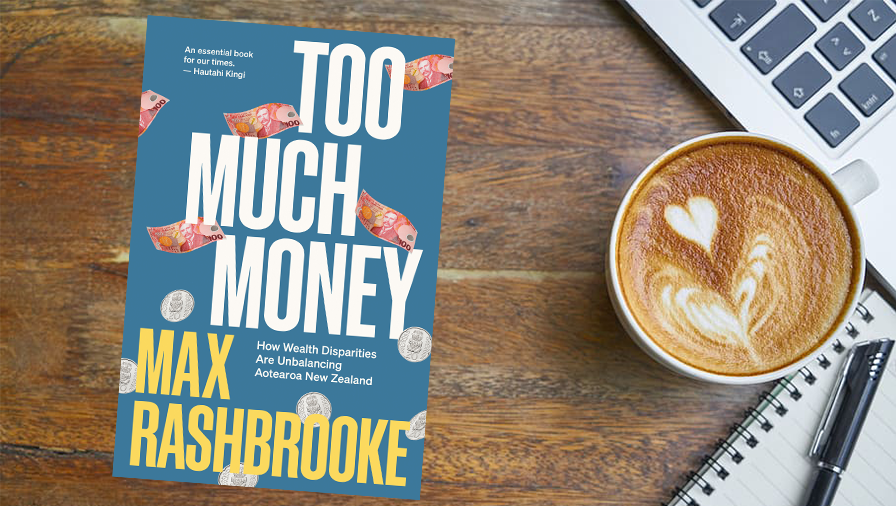
Too Much Money: How wealth disparities are unbalancing Aotearoa New Zealand, by Max Rashbrooke (Bridget Williams Books)
Nevil Gibson is a former editor at large for NBR. He has contributed film and book reviews to various publications.
This is supplied content and not paid for by NBR.
Sign up to get the latest stories and insights delivered to your inbox – free, every day.